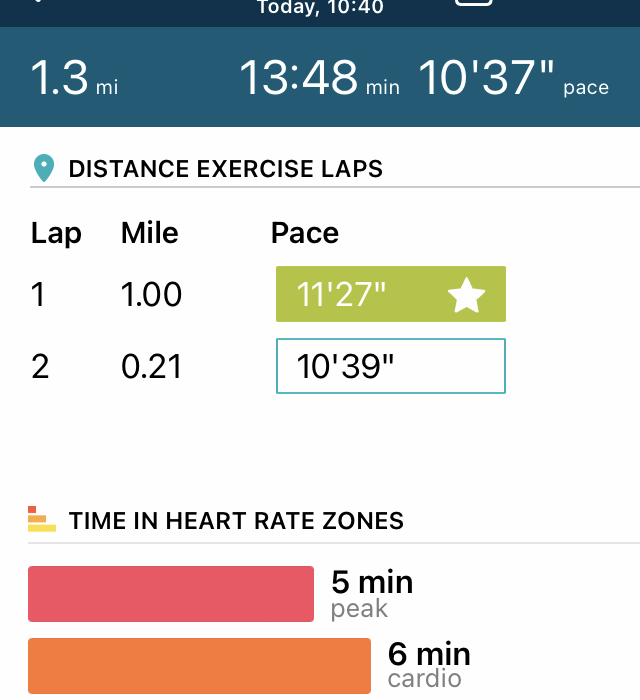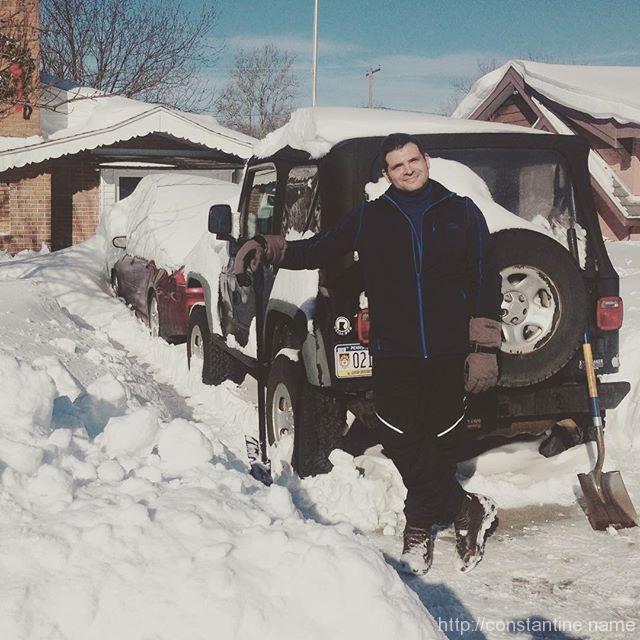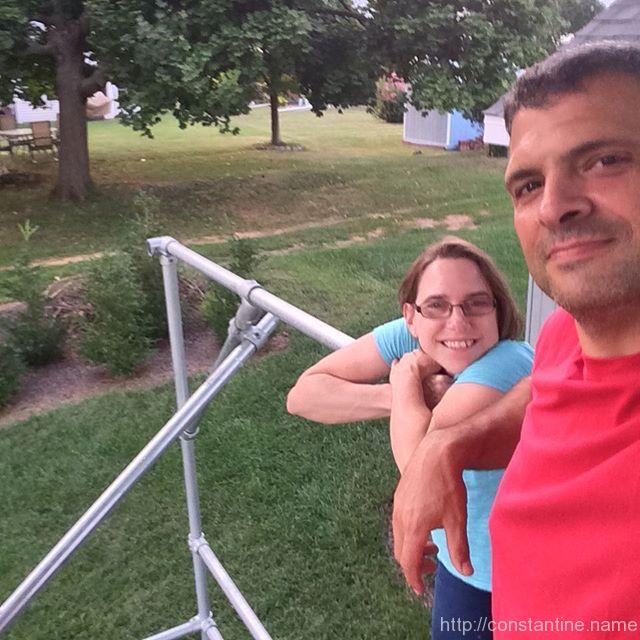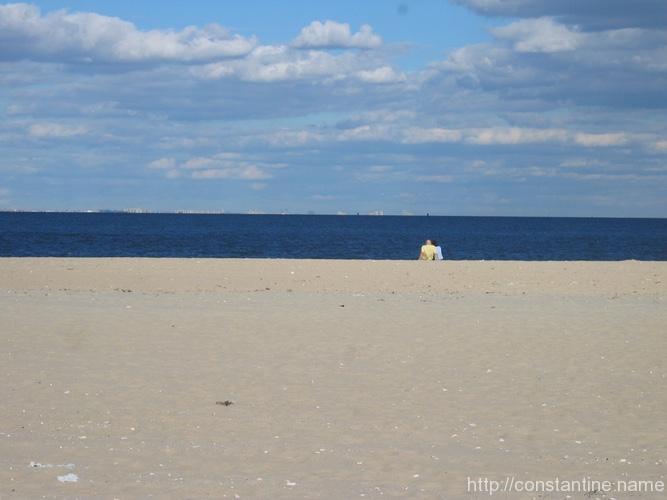Gak. Slow. On the upside, feeling a little thinner. On the downside… running.


Gak. Slow. On the upside, feeling a little thinner. On the downside… running.
Our world is an ecosystem in which our only real chance at survival as a species is cooperation, community, and care, but it’s being led by people who believe in an ego system, run on competition, power, and self-interest.
~ Austin Kleon
slip:4a1261.
The way to fame goes through the palaces, the way to happiness goes through the markets, the way to virtue goes through the deserts.
~ Chinese proverb
slip:4a999.
Building models is a fundamental part of trying to understand the world in any systematic or organized way. The world has too many details and complexities to be taken in all at once. In order to really understand a particular phenomenon, we need to focus on certain essential details while ignoring others.
~ Todd Hargrove from, Models of Pain and Movement — BETTER MOVEMENT
slip:4ubebo1.
I often remind myself that all models are wrong, but some models are useful. Maps, metaphors, similes, and even some storytelling are all models.
Two things top of mind: Why oh why!? doesn’t similes pluralize via -ies? (Say the singular and plural forms of smile and simile… wth English?) And second, I use a related-to-models test for what I mean by, “I always tell the truth.” (To tell the truth, I always say the thing which helps the other person build an accurate model of reality.)
ɕ
You know, Phaedrus, that is the strange thing about writing, which makes it truly correspond to painting. The painter’s products stand before us as though they were alive. But if you question them, they maintain a majestic silence. It is the same with written words. They seem to talk to you as though they were intelligent, but if you ask them anything about what they say from a desire to be instructed they go on telling just the same thing forever.
~ Socrates
slip:4a538.
I’m away at a parkour event this weekend, lots of walking and playing and jumping. One session was a discussion of fear, and of consequences. And one particular question for discussion was, “When do you stop?” People raised lots of ideas—good ideas, wise ideas… lots of things I was in agreement about.
But I was also thinking, “Wait. Why do I have to decide that?”
I know I’ve certainly faced decisions about stopping. Work, play, relationships, sports, parkour practices (ask me about the time I climbed across a train station outside of Paris,) … yes, deciding if, when and why to stop is an obvious question.
If I think about two paths—perhaps diverging in the woods, if you like that imagery—an hour’s hike along the path of one choice, I might decide I’m going the wrong way. There’s one of those when-to-stop decisions. But the mistake was an hour before, where the paths diverged.
This business venture: what if I had truly been committed, and had planned clearly the way we’d know when to stop? The question is gone. This relationship: could it be planned, or could two people be so honest, that the question doesn’t appear? This parkour jump, at the end of an exhausting day of training: why am I standing here, right now? If I’d planned better, could I have gotten all the same benefit, but a few minutes before right-now, I’d have moved to something else?
Might it be possible to still have challenge, commitment, growth, love, spontaneity, and humor… without ever having to decide, “should I stop this now?”
ɕ
Depending on how well you know me, you’ll have differing ideas about how much of a “softie” I am. I’ll be clear: I’m a big softie; all bark and no bite.
Here on the ‘ol blog—3,000 posts is coming up fast—I don’t normally bother even mentioning entertainment—”tv” colloquially… Well, I just finished watching Halt and Catch Fire (originally from AMC, but streaming on Netflix.)
Now, maybe it’s the fact that I basically lived through what the show is about. Maybe it’s because, you know, I was the Wizard behind the curtain who built those things and lived through those creations and wrote the code and pulled the wires and bent stuff until it caught fire. Maybe it’s because I’m getting up there in years. Maybe it’s because the thing just had to fucking end on Peter Gabriel’s, Solsbury Hill. Maybe because 30 years ago I made some life-long friends listening to that music… Maybe it’s because I still believe I’ve not accomplished anything and absolutely understand the pull… Or maybe it was just Gordon’s words…
Or maybe I’m not conveying the feeling at all.
…but perhaps—just maybe—you’ve caught a glimmer of apprehension…
So.
What are you gonna’ do with that, Craig?
And hey, what are you going to do next?
ɕ
The vast majority of these resources are not directly related to the information on the page, and I’m including advertising. Many of the scripts that were loaded are purely for surveillance purposes: self-hosted analytics, of which there are several examples; various third-party analytics firms like Salesforce, Chartbeat, and Optimizely; and social network sharing widgets. They churn through CPU cycles and cause my six-year-old computer to cry out in pain and fury. I’m not asking much of it; I have opened a text-based document on the web.
~ Nick Heer from, The Bullshit Web – Pixel Envy
slip:4upobo2.
This is a long, in-depth read. You will be an immensely more well-informed user of the Interwebs after you read it— about six times.
Meanwhile, have you heard of the magical analysis tool that is http://gtmetrix.com ? You have now! Start dropping your favorite web sites into its analysis magic, sit back and weep at what we’re using the Internet for.
These screenshots are just the tip of the iceberg. GTMetrix shows an insane amount of detail.


This. Shit. Has. To. Stop.
ɕ

Walked 4 miles. Forgot to take a picture. Here, have a totally non sequitor photo of me shoveling snow.
ɕ

Post pool party and cook out with family, little scaf play… “couples who scaf together, laf’ together!” Fall is my favorite season :D
ɕ

And while many might say, “Sure, you can say that now that you’ve reached a certain level of success,” I think that’s wrong. Many people who achieve success don’t find contentment, and are always driven to want more, and are unhappy with themselves. Many people who are poor or don’t have a “successful” career have also found contentment. And what’s more, I think finding contentment has actually driven any success that I’ve found — it helped me get out of debt, it helped me change my habits, it has made me a better husband, father, friend and collaborator, perhaps even a better writer.
~ Leo Babauta from, A Guide to Practical Contentment – Zen Habits Website
slip:4uzeco2.
ɕ